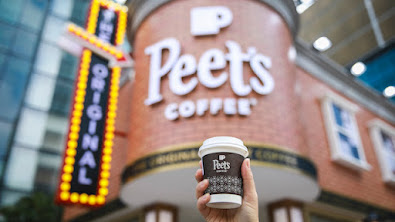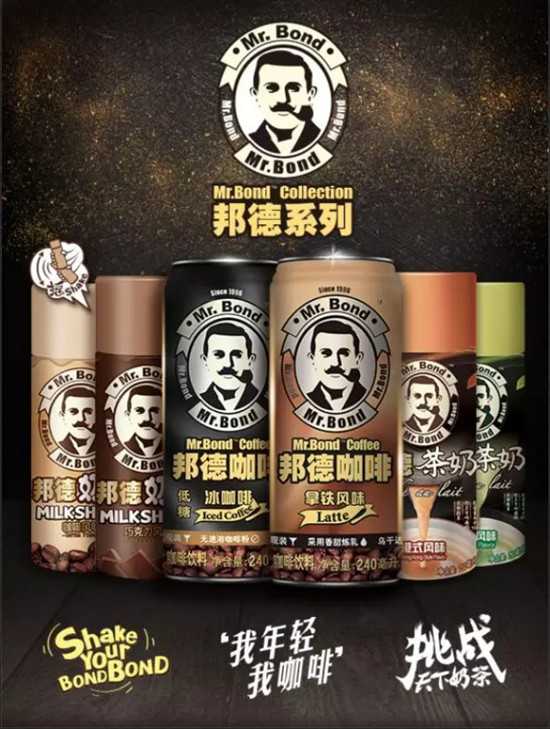I named my investment approach the Coffee Can Portfolio APAC after a buy-and-hold method developed by American analyst Rob Kirby. I tweaked the approach he suggested by focusing on infrastructure and consumer staples stocks. As a result, I have a bunch of coffee-related companies in my portfolio. I thought it would be fun to highlight those.
JDE Peet's is the unmistakable coffee king in my portfolio. The company offers many coffee brands all over the world: Peet's Coffee, Jacobs, Douwe Egberts, Campos, Tassimo, Senseo, L'OR, Super (Singapore), Old Town White Coffee (Malaysia), and tens of other brands. Some of those have cafe-type outlets which you can visit. The picture shows a pop-up store of Peet's Coffee in Shanghai.
Luckin Coffee is a Chinese coffee giant which runs cafes but has no packaged product yet. In some of their outlets, you can sit down to enjoy your coffee, but most are takeaway only. They have more stores than Starbucks in China, but in revenue, Luckin is still second because their products are cheaper.
Maxim's Caterers is a 50% participation of my holding DFI (Dairy Farm International). Maxim's has the license to exclusively run Starbucks stores in Singapore, Hong Kong, Macau, Vietnam, and Cambodia.
Maxim's Caterers has a joint venture with Fraser & Neave, another holding of mine, to run Starbucks stores in Thailand. This joint venture is also 50/50.
Staying with Dairy Farm International, its house brand Meadows offers instant coffee and 3-in-1 coffee mix in their supermarkets, such as Giant and Cold Storage as well as in third-party outlets (Foodpanda).
South-Korean consumer goods conglomerate LG H&H runs a beverage bottling operation that produces drinks from the Coca-Cola Company. The canned coffee brand GEORGIA is one of the Coca-Cola drinks they licensed for Korea.
China Foods Limited is licensed to sell Coca-Cola beverages in 19 provinces of China. They don't offer GEORGIA, but they do have another canned coffee drink in their portfolio called Costa RTD coffee. Costa is a coffee shop chain acquired by the Coca-Cola Company in 2019. There are Costa coffee shops in China too, but it seems that China Foods is not involved in those.
The strangest coffee drink from my holdings comes from Want Want China: Mr. Bond Coffee. I could not find any information about it. Are they referring to James Bond? The man shown on the can resembles detective Sherlock Holmes rather than master spy James Bond. Also, I am pretty sure Bond prefers Martini over coffee.
For the final two coffee servings, we leave Asia. British bakery chain Greggs sells coffee to go with their sausage rolls and sandwiches. Classics such as Mocha, Americano, and Latte, with special editions during holidays. Recently they added two canned coffee offerings: Caramel Latte and Original Latte, as the picture shows.
Associated British Foods offers various grocery items all over the world. In their long listing of those, I found Jarrah, which is an Australian brand of powdered coffee. You pour hot water over the powder to make it ready for consumption. Jarrah offers a hot chocolate variant too.










